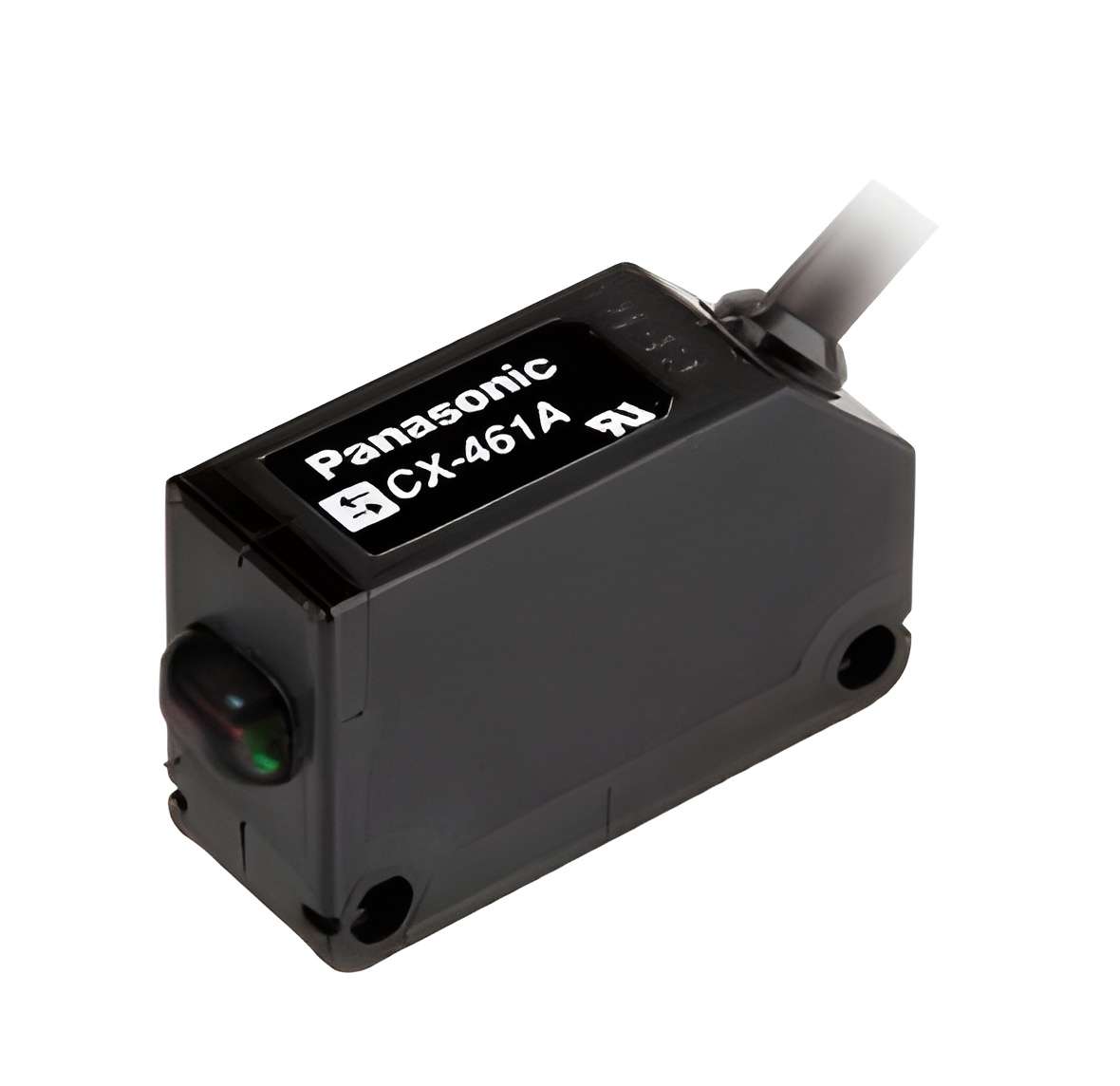Panasonic CX-461A-C05 Sensor: High-Performance and Reliability for Industrial Use
Panasonic CX-461A-C05 Sensor Specifications
The Panasonic CX-461A-C05 sensor is engineered for high-performance detection in industrial environments. Its superior build quality and advanced technology make it the ideal choice for a variety of applications. Below are the key specifications of the CX-461A-C05 sensor:
- Detection Range: The sensor offers a long-range detection capability, providing accuracy over extended distances.
- Power Supply: Requires a stable power supply for optimal performance in various industrial environments.
- Connectivity Options: Supports multiple connectivity options for integration into automation systems and other industrial setups.
- Fast Response Time: Ensures quick feedback for time-sensitive processes.
- Reflective Sensor Technology: Utilizes reflective sensor technology to detect objects with high precision.
- Durability: Built to last, the sensor is designed for heavy-duty industrial applications and extreme environments.
- Sensitivity Adjustment: Provides adjustable sensitivity settings for more flexible operation in different conditions.
- Operational Stability: Maintains consistent performance even in challenging industrial environments.
Industrial Applications of Panasonic CX-461A-C05 Sensor
The Panasonic CX-461A-C05 sensor is highly versatile and can be used in various industrial applications. Here are some of the industries and scenarios where this sensor excels:
- Automation Systems: Ideal for integration in automated systems, ensuring smooth and reliable operation.
- Manufacturing: Used in production lines to detect parts and materials with high precision.
- Factory Automation: Perfect for monitoring machine parts and ensuring product quality control.
- Heavy-Duty Industrial Applications: Built to withstand tough environments in industries like mining, automotive, and construction.
- Material Handling: Provides accurate detection for sorting and conveyor systems in warehouses and logistics centers.
How to Install the Panasonic CX-461A-C05 Sensor
Installing the Panasonic CX-461A-C05 sensor is a straightforward process. Follow these simple steps to ensure optimal performance:
- Step 1: Mount the sensor at the desired location. Ensure it is positioned for optimal detection range.
- Step 2: Connect the power supply, ensuring it matches the required voltage specifications.
- Step 3: Connect the sensor to your automation system using the available connectivity options.
- Step 4: Adjust the sensitivity settings according to the operational needs.
- Step 5: Test the sensor by running a few cycles to ensure proper operation and detection accuracy.
Panasonic CX-461A-C05 Sensor Troubleshooting
In case you encounter any issues with the CX-461A-C05 sensor, refer to the following troubleshooting guide:
- Problem 1: Sensor not detecting objects – Check the alignment and ensure there are no obstructions in the detection path.
- Problem 2: Inconsistent response time – Verify the power supply and ensure it is stable.
- Problem 3: Low sensitivity – Adjust the sensitivity settings to optimize detection.
- Problem 4: Sensor not responding – Check the wiring and ensure all connections are secure.
Frequently Asked Questions (FAQs)
1. What is the detection range of the CX-461A-C05 sensor?
The CX-461A-C05 sensor offers an extended detection range, making it ideal for long-distance applications in industrial environments.
2. Can the CX-461A-C05 sensor be used in automation systems?
Yes, the CX-461A-C05 sensor is designed for seamless integration into automation systems, providing accurate feedback in real-time.
3. Is the CX-461A-C05 sensor durable?
Yes, the sensor is built with industrial-grade materials, ensuring long-lasting durability and reliability even in harsh environments.
4. How do I adjust the sensitivity of the CX-461A-C05 sensor?
The sensitivity of the sensor can be easily adjusted using the onboard control settings to match your specific application needs.
Related Articles: Learn more about the Photoelectric sensors by reading our blog on What is a Photoelectric Sensor?

